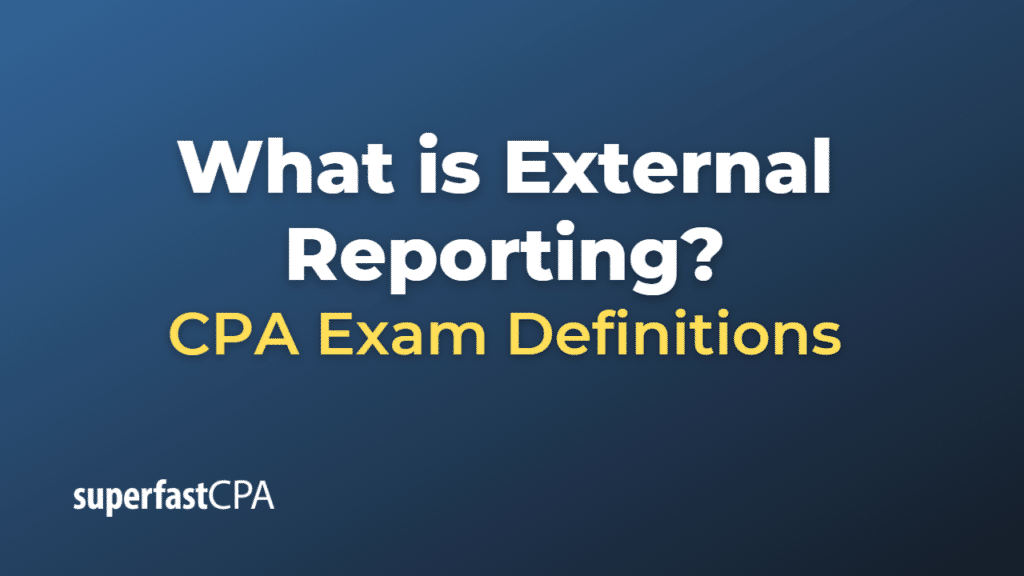External Reporting
External reporting refers to the communication of information from a company to external stakeholders, such as investors, creditors, regulators, and the general public. This information can be financial or non-financial and is typically meant to provide insights into the company’s performance, operations, strategy, and impact on society and the environment.
- Financial External Reporting: This involves sharing financial statements like balance sheets, income statements, cash flow statements, and statements of changes in equity. These reports help stakeholders assess the financial health and performance of the company.
- Non-financial External Reporting: This may include information on environmental, social, and governance (ESG) factors, corporate social responsibility (CSR) initiatives, or other aspects of the company’s operations and performance. Non-financial reporting can cover topics like sustainability efforts, diversity and inclusion initiatives, data privacy and security practices, supply chain management, and more. This kind of reporting can help stakeholders evaluate the company’s wider societal impacts and adherence to ethical standards.
External reporting needs to comply with various rules and regulations. Financial reporting, for instance, is generally subject to the accounting standards of the country in which a company operates, such as Generally Accepted Accounting Principles (GAAP) in the United States or International Financial Reporting Standards (IFRS) in many other countries. Non-financial reporting can also be subject to regulation, and there are numerous voluntary standards and frameworks, such as the Global Reporting Initiative (GRI) and the Sustainability Accounting Standards Board (SASB).
The primary goal of external reporting is to provide transparency and allow stakeholders to make informed decisions regarding their relationship with the company, whether as investors, creditors, customers, or members of the community in which the company operates.
Example of External Reporting
Let’s consider a publicly-traded tech company we’ll call “GlobalTech.”
- Financial External Reporting: At the end of every quarter and fiscal year, GlobalTech prepares and releases financial statements. These include the income statement (which shows revenues, costs, and net profit), balance sheet (which outlines assets, liabilities, and shareholders’ equity), and cash flow statement (which shows cash inflows and outflows from operations, investing, and financing activities). These documents are shared with shareholders, investors, analysts, and regulatory bodies such as the Securities and Exchange Commission (SEC) in the U.S.For instance, if GlobalTech’s net income has increased significantly compared to the previous year, that would indicate to investors and analysts that the company’s profitability has improved.
- Non-Financial External Reporting: Besides financial data, GlobalTech also releases an annual sustainability report. This report covers the company’s environmental, social, and governance (ESG) initiatives and performance. It might include information about GlobalTech’s carbon footprint, energy efficiency measures, waste management practices, employee diversity and inclusion programs, community outreach activities, and corporate governance structures.For example, if GlobalTech has a goal to reduce its carbon emissions by 20% over the next five years, the sustainability report would include information about the progress towards this goal. This can help stakeholders, including socially-conscious investors and customers, to assess the company’s environmental impact and commitment to sustainability.
In both these cases, GlobalTech is using external reporting to provide transparency to its stakeholders and help them make informed decisions. By being transparent about both its financial performance and its broader impacts, GlobalTech can build trust with its stakeholders and demonstrate its commitment to not only profitability, but also corporate responsibility and sustainable business practices.













